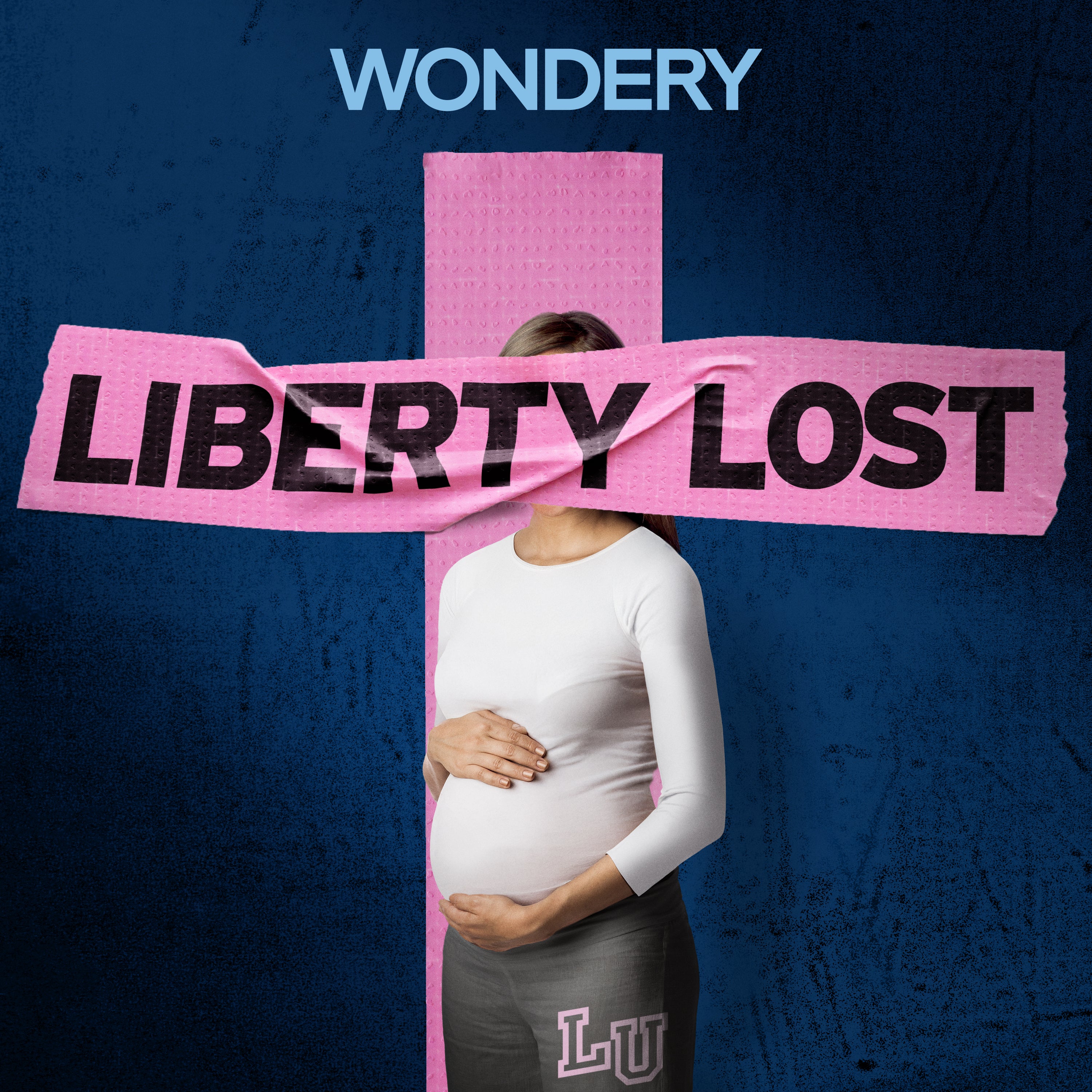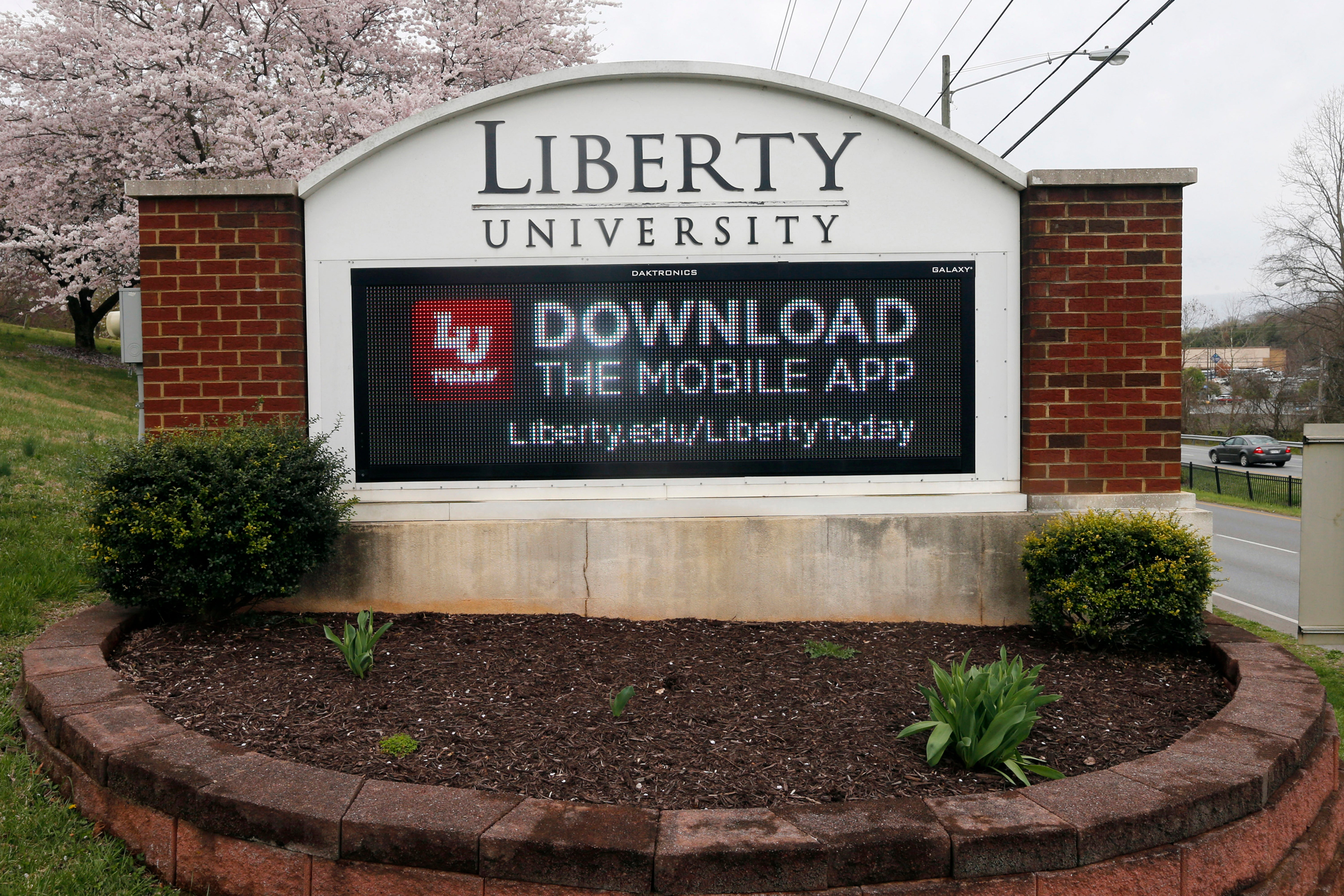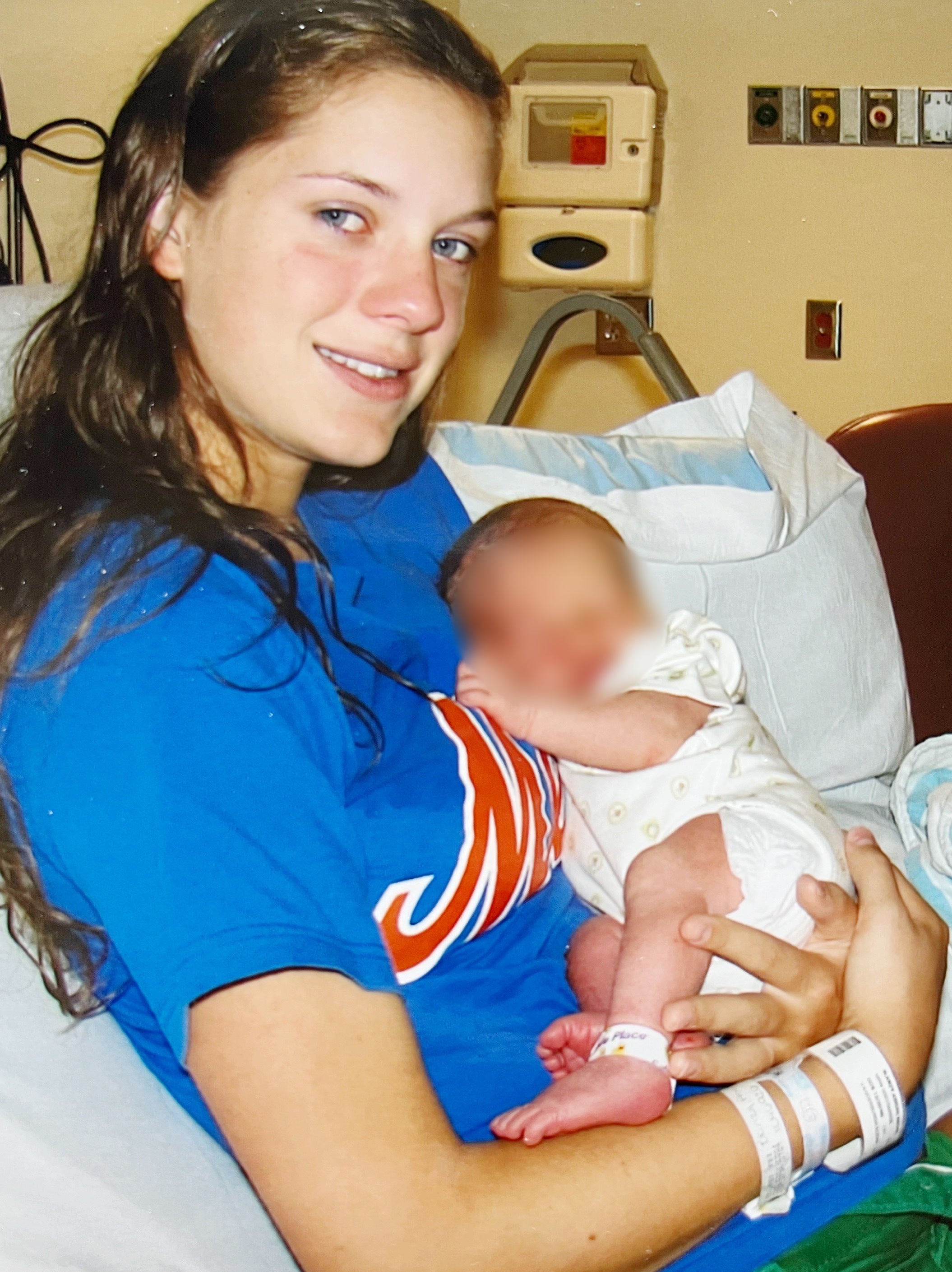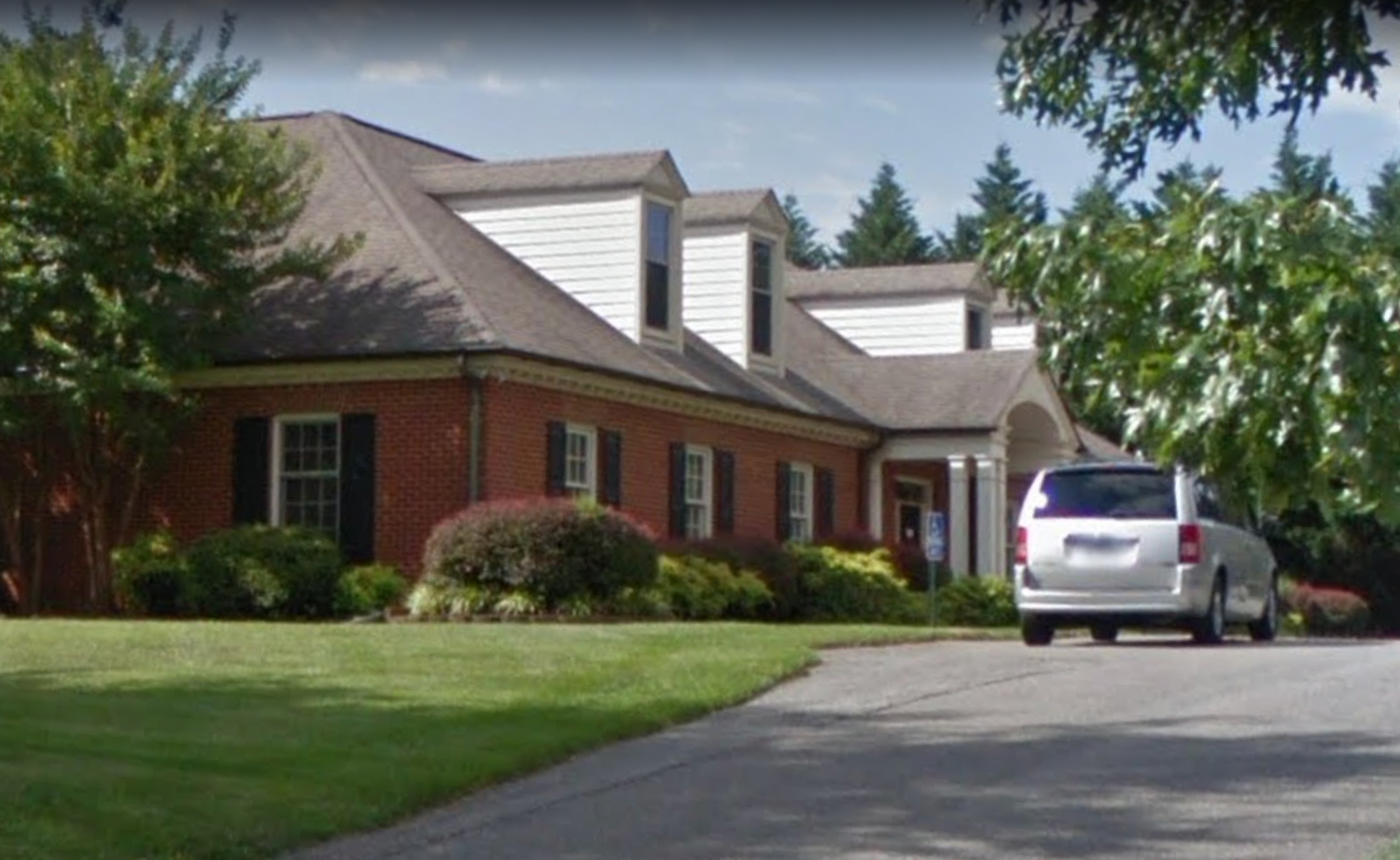When Abbi Johnson became pregnant at 16, no one offered her a baby shower. Instead, she was sent away to a maternity home for young, unwed mothers.
In her evangelical household in North Carolina, premarital sex wasn’t just taboo — it was a sin. The mentality of “saving yourself” until marriage was the most consistent thread throughout her upbringing, she told The Independent.
Her father gave her a purity ring, proudly announcing to others that she had “promised him her virginity” until she was married. That expectation is a ritual many evangelical girls go through, reinforced by youth pastors who preach modesty and obedience, warning girls not to “tempt” boys with the way they behave or dress.
So when Abbi got pregnant back in 2008, her devout parents, ashamed and desperate to hide the fallout, sent her to the Liberty Godparent Home — a little-known maternity facility on the campus of Liberty University in Lynchburg, Virginia.
There, she was told she would be safe. Supported. Guided. What she didn’t know was that she was entering a system that many women now say was built on coercion, control, and a quiet transaction: her baby in exchange for her future.
The home for young mothers was a place that, in hindsight, felt eerily reminiscent of The Handmaid’s Tale — not in costume, but in control. There were locks on the windows and doors. The girls were required to attend church services together, taught to obey without question, and then they were punished when they rebelled. Their pregnancies were treated as moral failures that needed to be atoned for.
At the end of their time, a ceremony was held — there was cake, gifts, and family. But this wasn’t a celebration of motherhood. It was a goodbye. This is when they handed over their babies — whether they truly wanted to or not.
The twisted transaction is the center of Liberty Lost, a powerful new investigative podcast from Wondery, that dropped Monday. Hosted by journalist T.J. Raphael, the six-part series pulls back the curtain on the Godparent Home and the culture of forced adoption inside America’s most powerful evangelical university.
Raphael reveals the dystopian reality behind a secretive institution on campus, where pregnant teens have come forward years later to report feeling pressured and coerced into giving up their babies for adoption.
At the heart of the story featured in the podcast is Abbi — now in her 30s with a family, living on the opposite coast from the Bible belt – who is determined to tell the truth she says has been buried for nearly two decades, along with the trauma that never left her.

After giving birth, Abbi continued her time at Liberty University to fulfill her expected role of a “normal” college student.
But while other teenage girls were “listening to Taylor Swift and working at Forever 21,” she found it hard to care about any of it. Instead, she was consumed with the loss of the son she had handed over to a “affluent, married Christian couple” because she was told it was “God’s plan.”
“I was raised to understand that this was the path … I'd been hearing it my whole life, the rhetoric that a baby deserves two loving parents and married households, you know,” Abbi told The Independent.
What Abbi experienced stems from a dark history that began with Jerry Falwell Sr, who created these maternity homes in response to Roe v Wade back in the 1980s. But what many do not know is that some of these homes still exist today.
“It's not even about needing that historical context to know this is what's happening,” she said. “It's what happened to me.”
A history hidden in plain sight
The Liberty Godparent Home was established in 1982 and sits on Liberty University’s sprawling campus, founded by Falwell — a man who helped build the modern Christian Right, advocating for a “pro-family” agenda focused on issues like abortion, school prayer, and traditional family values.
“One man for woman for one lifetime and no sex — period — outside of marriage,” his voice booms in one of the snippets from the podcast. Falwell died in 2007, but his legacy and his mission lived on.
Now, Godparent Home is one of a growing number of faith-based maternity homes that claim to offer support to young pregnant women.
But as Raphael discovers, the real message inside the walls was often far more punishing.

If these girls complete the Godparent Home's program, they're eligible for a full-ride scholarship to Liberty, Raphael says.
Liberty Lost draws from intimate interviews with Abbi and three other women who lived in the Home between 1991 and 2008, weaving together stories of isolation, manipulation, and loss.
‘God’s plan’
Abbi wasn’t physically forced to hand over her baby.
But after her parents refused to let her return home with the baby, with no financial support — and with the prospect of a full college scholarship dangling in front of her — she felt her options were limited.
“It wasn’t what I wanted to do at all,” Abbi told The Independent.
“But it was incredibly confusing. I would ask, ‘Why do complete strangers get to have my son, and I have to earn a relationship with him?’ I hadn’t done anything wrong. But they laid down the law — this was the punishment, and I was expected to live it gracefully.”

The adoption was sold to her as “open,” but when Abbi tried to advocate for more contact, she was denied. Her monitored visits ended.
The relationship with her son — already fragile — faded. That loss, she says, ultimately freed her to speak.
“If my son was seeking this information, I wanted it to be there. And when the other women started coming forward, it was like the biggest hug — emotionally, it was validating and gratifying. I wasn’t alone.”
She posted videos of herself telling her story and began receiving messages from other women who had similar experiences. Some had no support from anyone, others had family support, but the financial burden was too much to do on their own.
@voicelessbirthmother #womenshistorymonth #birthmother #familypreservation #abolishadoption #legalgardianship #adoptiontraumaawareness #adoptionistrauma #babyscooper #babyscoop #babyscoopera #babyscoopadoptee Hashtags for exposure: #birthmomstrong #birthmomsupport #birthmomsrock #birthmomlove #adoption #hopefuladoptiveparents #hopefuladoptivefamily #hopefuladoptivemom #hopefuladoptiveparent #hopefuladoptivecouple #adoptionislove #adoptionrocks #adoptionisalifelongjourney #adoptionstory #adoptionisbeautiful #adoptionisthebestoption #adoptionisthegospel #womensupportingwomen #womenempowerment
♬ original sound - Abbi Johnson
Abbi’s own experience was shaped not only by the staff at the home but by the deeply rooted religious culture she grew up in.
Both of her parents admitted to being influenced by their religious culture when making the decision to send their daughter away, and then expressed regret in response to the podcast.
“When our daughter became pregnant at 16, I made mistakes in my guidance that resulted in lifelong consequences,” her mother, Debbie Blanzy, wrote in a statement shared with the podcast. “Influenced by a culture that believed babies developed best in two-parent homes, I embraced this philosophy and didn’t connect with our daughter’s earnest desire to parent her baby son.”
She explained that their health insurance would not cover any of the expenses incurred during the birth. But the Godparent Home, at the university where she is an alum, had promised her expenses would be covered – on the condition that she complete the program.
“In other words, if she left early without staff approval, we would have to reimburse the Home for the expenses incurred for our daughter’s time there.....that scared me.”
“There was so much I didn’t realize back then about adoption, adoptee trauma, and the injurious aftermath suffered by birth parents,” she said, adding that she has come to “see things about the practice of adoption in the U.S. that are in need of reform.”
Abbi’s father, Don, echoed the regret in his statement:
“Knowing what I know now, I would not have allowed the adoption process to proceed,” he said. “I should have simply said, ‘We are having a baby. Let us celebrate and go home,’” he added, admitting that he had been “wrongfully influenced by the culture around me.”
A dangerous resurgence
What happened to Abbi isn’t just history — it’s prophecy.
Since the overturning of Roe v. Wade, there has been a 23 percent increase in maternity homes across the United States. And Liberty’s Godparent Home sits at the center of this growing movement.
“People think these homes went away,” says Raphael. “They didn’t. They never stopped existing. If anything, in 2025, they're growing. Since the end of Roe, there has been an effort to grow them across the country.”
Through her research, Raphael found that $50 million in state and federal funding has fueled the expansion of anti-abortion counseling centers, adoption agencies, and maternity homes.

The former director of the Godparent Home sat for years on the leadership council of the National Maternity Housing Coalition — run by Heartbeat International, the largest anti-abortion organization in the world.
That’s why this story matters now, Raphael says.
“I wanted to tell a story that could speak to our present moment. And what I learned is that the post-Roe landscape isn’t just about banning abortion — it’s about controlling the outcomes of birth. That includes who gets to be a parent.”
The Independent reached out to both Liberty University and the Godparent Home for comment, and received the following statement on Wednesday:
“Since 1982, the Liberty Godparent Foundation has supported hundreds of young women to offer housing, counseling and educational resources that empower informed parenting and voluntary adoption with compassion and care. Its vital role in serving Central Virginia has been widely recognized for decades.”
It continued: “Our staff and volunteers work tirelessly in this ministry and have built a reputation of being a trusted voice and ministry resource in the community. They have treated every individual who has sought assistance with compassion and integrity. We reject claims of this tabloid podcast as irresponsible journalism designed to undermine this important work and to minimize the importance and effectiveness of pro-life organizations.”
More than a story — it’s a warning
Liberty Lost isn’t just about one maternity home, or one girl.
The series asks a chilling question in a post-Roe America: Who gets to decide who is worthy of becoming, or remaining, a parent?
“There’s a need, in theory, for these places – places that provide safe housing, food, support for vulnerable women,” Raphael said. “That is a wonderful idea in theory, but when it is intertwined with potentially problematic values about single motherhood, that's where the problem is and that’s when women face the risk of being separated from their children.”
For Abbi Johnson, the wound has never healed.

But speaking out, she says, is part of the path forward — not just for her, but for others.
“My biggest hope is that people think a lot more about the circumstances a woman finds herself in that she would even be considering adoption,” she said. “Who’s putting that option in front of her and how is it being presented and how is she being made to feel in terms of support?”
“And not just in that moment – of that traumatic experience of being pregnant when you feel like you have no support and no resources – but think about every factor that goes into finding yourself in that situation,” she continued.
“Think about what we offer women and why we offer those options and why this idea that there are better women suited for someone else’s baby is such a culturally accepted idea.”
Liberty Lost debuted June 23 on all podcast platforms.
Why it’s never been more important to decriminalise abortion
Do you hate Disney Adults – or are you just jealous?
Ohio plans swift appeal as court declares private school voucher system unconstitutional
The emotional toll of climate change is broad-ranging, especially for young people
Astronauts from India, Poland and Hungary blast off on a privately funded trip to the space station







